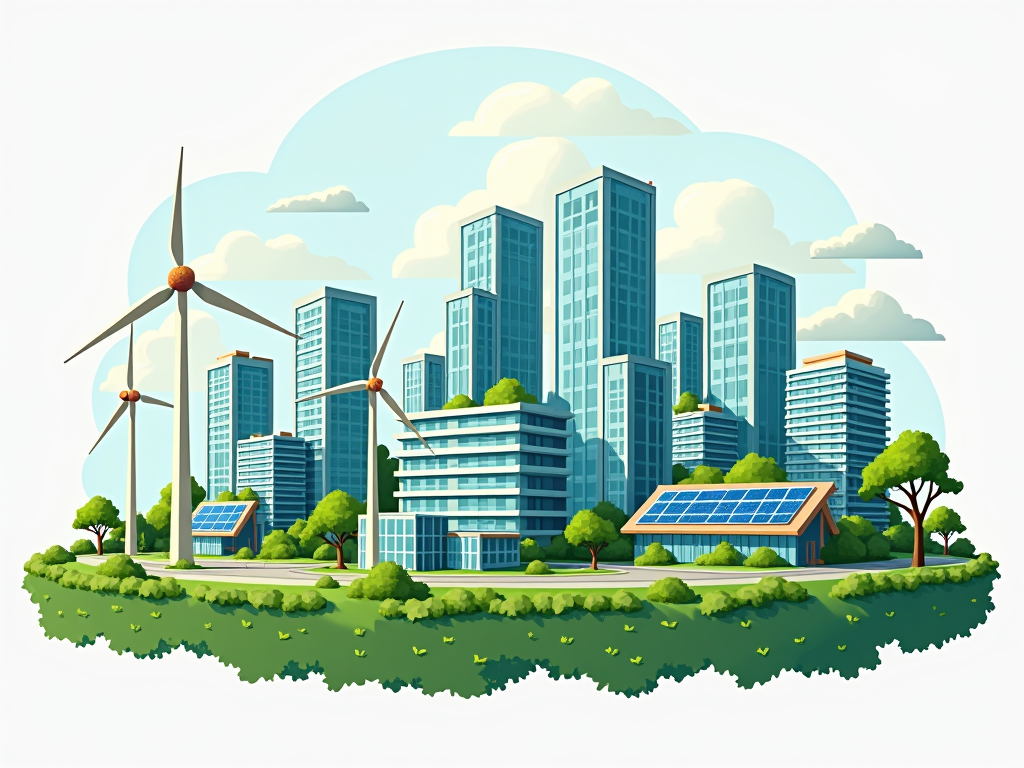The economy is at a crossroads, where sustainability is no longer just an ideal but a strategic necessity. Investors and private shareholders play a crucial role in this change, which is characterized by regulations and economic opportunities. The first chapter explores how regulations force companies into a sustainable transformation. In the second chapter, it is shown how these transformations can generate economic opportunities and challenges capable of shaping the future of the economy.
Regulation as the Engine of Sustainable Change in the Economy

The structural change of the economy towards a more sustainable model is strongly influenced by legislative regulations. These adjustments not only impose mandatory requirements but also provide opportunities for innovation and strategic developments. In this context, the taxonomy of the European Union plays a central role. It compels companies to make their economic activities transparent according to predefined sustainability criteria. This measure is essential to prevent greenwashing – misleading the public about companies’ ecological responsibility – and to steer investments towards truly sustainable projects.
Another significant tool is the German Supply Chain Act (Lieferkettengesetz (LkSG)), which initiates a paradigm shift: companies’ responsibility no longer ends at their gates, but extends throughout the entire supply chain. With this regulation, social and ecological standards become mandatory, which not only strengthens the protection of people and the environment but also enhances companies’ long-term reputation.
Regulation through the Corporate Sustainability Reporting Directive (CSRD) broadens the requirements for sustainability reporting for large companies. They must provide detailed information based on the European sustainability standards. These requirements create a basis on which stakeholders can build trustworthy business relationships. Companies that take the ESG criteria (Environmental, Social, Governance) seriously use this as a quality mark, which has gained significance among investors.
However, with the tightening of legal requirements come challenges. Companies that do not comply with legal requirements risk significant legal and reputational damages. The challenge lies in understanding existing regulations not as obstacles but as catalysts for innovation. Technological advances, especially in the areas of energy efficiency and wastewater recycling, enable companies to explore sustainable sectors and significantly improve their environmental balance.
In summary, it is important to emphasize that legislative regulations do not only represent reporting obligations but can act as engines of sustainable change. Companies must recognize and leverage the opportunities presented by these developments to not only navigate regulatory filters but also to secure long-term competitive advantages.
Sustainability as the Engine for Economic Change

Sustainability is no longer just a formal matter. Today it is considered a crucial factor that offers both economic opportunities and poses challenges. For companies that adapt to this new reality, numerous possibilities open up that go far beyond short-term profits.
One of the most significant economic opportunities lies in brand building and gaining competitive advantages. Well-known brands that transparently communicate their sustainability strategy increasingly earn consumer trust, thereby increasing market share and revenues. Companies that early implement sustainable standards position themselves as pioneers and attract investors who prioritize ESG criteria in their decisions. These investors are willing to invest in companies that, among other things, often benefit from better financing conditions.
The financial aspect of sustainable practices should not be underestimated. Through more efficient resource use and a shift to renewable energy sources, significant savings can be achieved. Although such changes require substantial initial investments, the long-term benefits are considerable, both economically and ecologically. New business areas, particularly in the renewable energy and circular economy sectors, offer potential for innovation. Companies that strategically invest in new products and services secure competitive advantages and attract new customer segments.
Despite all these opportunities, the challenges associated with transitioning to sustainability must not be underestimated. Regulatory requirements and adherence to rigorous environmental and social standards demand total compliance, which requires additional administrative and financial resources. Companies face the challenge of integrating these standards without compromising their economic efficiency and competitiveness.
Another obstacle is the high initial investments required for the transition to sustainable technologies. These often represent a test of patience for companies until investments start to yield returns. Simultaneously, they must recognize and manage potential risks early, such as regulatory changes and reputational risks.
To face challenges and capitalize on opportunities, well-thought-out strategies are required. Materiality analyses help companies identify and target sustainability topics relevant to them. This creates trust among stakeholders and fosters transparency. Financial support through green bonds or government assistance programs can significantly alleviate the financial burden of transformation.
In summary, sustainable transformation offers both significant economic opportunities and challenges. Companies that act from a future perspective and proactively adapt to evolving requirements ensure a sustainable and prosperous future in an increasingly complex market.